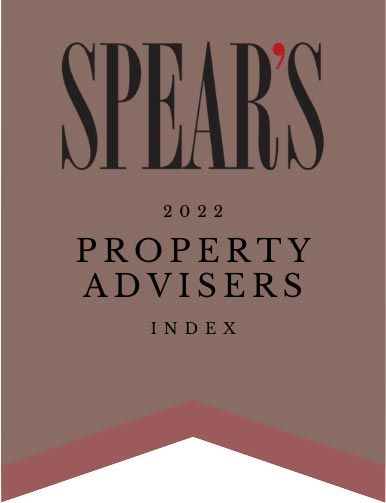The impact of Brexit on the property market has been well documented. As the UK’s economy has seen a sharp downturn1, the value of property – particularly in certain parts of London2 – has taken a dramatic hit.
The downturn has largely been attributed to uncertainty in the economy. There has also been an increasing numbers of staff relocations being announced by large organisations. Most recently, Bank of America Merryl Lynch announced it will be moving 125 staff to Ireland, with further relocations expected in the future.3
The news comes as research reveals that nearly a third (31 per cent)4 of Chief Financial Officers in some of the biggest firms across the UK are gearing up to relocate staff away from the UK because of Brexit, up 10 per cent from summer 2017. If these relocations do go ahead, hundreds – if not thousands – of people will see their personal circumstances change significantly and the impact on their mortgages is not to be underestimated.
What happens to my mortgage if I’m relocated?
Our specialist broker team is reporting an increasing number of individuals who are seeking out advice, having become ‘accidental landlords’. These clients own UK real estate but are moving away from the UK as their primary residence. Often, they’re keen to hang on to their properties, either for family and personal reasons or because they’ve bought in a heated property market and won’t realise a satisfactory return on their investment in the current climate. As a result, they are renting out their homes and therefore need to change their mortgage to remain in line with regulations.
What are the new regulations for Buy to Let landlords in the UK?
Seeking out a Buy to Let mortgage has become more complex in recent years, as changes have been made to lending regulations. Before the changes, most lenders required a landlord’s rental income to cover 125 per cent of the mortgage payment, assuming a rate of 5 per cent, which the loan would be “stress tested” against. Taking a landlord with a property worth £200,0005 and a monthly rental income of £800 as an example – the landlord would be able to borrow £153,600 when remortgaging, which is roughly 75 per cent of the property’s value.
The new rules mean most lenders require rental income to cover 145 per cent of the mortgage payments, and the assumed rate is 5.5 per cent. The same landlord would now only be able to borrow £120,376 or achieve a loan to value ratio of 60 per cent.
Regulations specifically for portfolio landlords6 (those owning more than four properties) have also become more complex. They are now assessed on affordability based on all of their properties and need to provide business plans, cash flow documents, tax records and business models for all of their mortgaged properties — plus details of their other sources of income. In some cases, these may not meet banks’ lending criteria.
How can I find an expat Buy to Let mortgage?
In the Buy to Let space, there are hundreds of products to choose from, so there is lots of choice in the market if you can meet the new, stricter criteria. The requirements become more complex when clients are moving away from the UK, as they then require an expat Buy to Let mortgage, which is a niche product only offered by a handful of lenders. Added to the complexity can be the applicant’s nationality or domicile, as often those relocating are paying tax in different jurisdictions or perhaps being paid in different currencies. All of these details need to be declared to the mortgage provider and can result in more layers of complexity in securing a lending solution.
The good news is that there are solutions out there in the market. Our specialist broker team is experienced in finding lending options for a variety of different circumstances, and we regularly deal with the cases that other brokers can’t resolve. If you’re an expat landlord, looking to secure a mortgage, we’ve put together some top tips.
Speak to your existing mortgage provider
If you are locked into a fixed term deal and have become an accidental landlord, they may be flexible and let you continue on your current plan until the agreement runs out. Alternatively, they may give you a grace period if you’ve suddenly found your situation has changed and you need some time to work out your options.
Are you ready to be a landlord?
Take a step back and consider the reality of the situation. What is your potential rental return, who will manage your property, how long do you expect to rent it for? If you have all of this information, send it to the team at largemortgageloans.com and we can get a range of quotes to help you decide if the finances are going to work and what your potential repayments could be.
Clarify your tax position
If you’re moving away from the UK, you’ll need to register as a Non-Resident Landlord with HMRC and submit a tax return every year. Seek out specialist advice to ensure you’re clear on your tax situation.
Get the most appropriate deal
Expat Buy to Let mortgages are niche and – as such – will generally be a product for which you pay a premium. Make sure you are getting the best possible solution by speaking to our specialist team of brokers at largemortgageloans.com.
Your home or property may be repossessed if you do not keep up repayments on your mortgage. Changes in the exchange rate may increase the sterling equivalent of your debt.
1 http://uk.businessinsider.com/uk-inflation-rate-in-march-brexit-2018-4
2 https://www.theguardian.com/money/2018/mar/12/london-property-prices-plunge-as-brexit-effect-deepens
4 http://www.cityam.com/285300/nearly-third-company-cfos-gearing-up-relocate-staff-away-uk
6 https://www.ft.com/content/964317bc-9e11-11e7-8cd4-932067fbf946




















